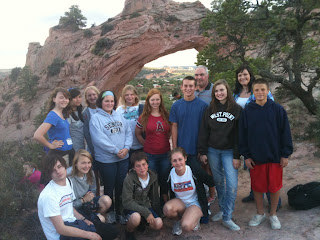Every Advent and Lent until 2 years ago I had terrible neck and shoulder pain. It would start with a couple tense muscles and get worse from there. I tried various over the counter medications and found some relief but usually, a week after Christmas and Lent, it would just go away. Two years ago when I started feeling the advent/lent pain I did something different, I went to a physical therapist. Since then at the first sign of the tension, I get my hand weights out of the closet and practice ways to relieve the tension.
Too often we live with the tension, seldom naming it or working to release it. Here are the five tensioned mentioned by Hugh Halter in chapter 3. They are:
1. The tension that comes from a broken heart.
2 The tension that comes from the simple frustrations of energy and resources wasted.
3. Tensions can bring fear.
4. Tension that arises when you see the structure of church falling and you realize everything the church stood on may go down too.
5. The tension related to our identity.
I think at one time I have experienced all of these tensions (plus the ulcer creating tension of not being able to pay bills and make payroll). I really loved the honesty of the letter included on pages 16 & 17—the pastor who works hard, loves deeply and felt a failure. But the tension I feel is a combination of both tension and longing. Longing for all the church could be and tension around how far we still have to go.
One of the things I am working on in my appointment is growing the leadership. One of my key strategies in bringing change and growing leadership is to model what ministry might look like and then hope that others go, yes! I want to be part of that! Of course, when you are in the midst of it, it can feel like just a lot of craziness, long hours and major tension. But Sunday that tension decreased.
Which is strange because on Saturday night, the church I serve was robbed. They got away with lots of computers and other items that could be easily sold at a swap meet. At both worships, I asked for prayer for the church as we addressed this robbery. We had just changed leadership at the church and so had a new Trustee chair: he was just great, jumped right into it. For the first time in 3 years, we also had lay leaders; they also were in the mix. Other laity—some staff, some not—helped out too. At the end of the day I felt, “WOW! How lay run this church is becoming, how exciting that is!” I went home and slept like a baby.
This week, there is still tension and lots to do cleaning up and figuring out who needs what, but I am grateful and almost a bit giddy too.
What tensions are you feeling in your local church? Do you talk about them? Do you have any ideas how to resolve them?
-Rev. Nicole
smumc.com





